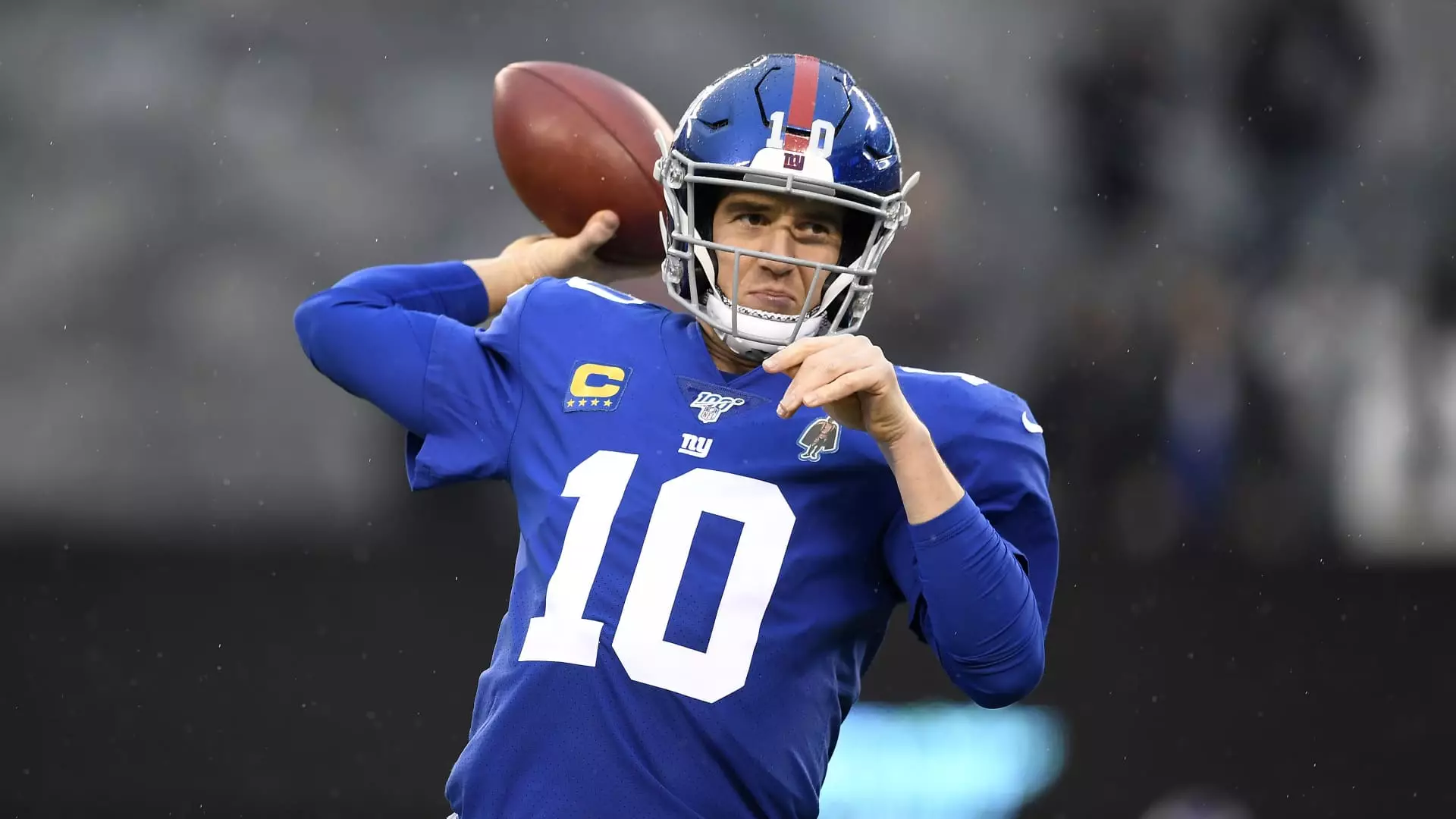The astronomical escalation of sports franchise valuations presents a troubling picture of modern capitalism’s obsession with spectacle and hype over tangible value. While the publicly touted worth of teams like the New York Giants, valued at around $7.85 billion, appears to demonstrate the league’s financial strength, this figure is more a reflection of inflated perceptions than concrete earnings or sustainable growth. The fact that recent sales of minority stakes—like the Eagles at $8.3 billion and the 49ers over $8.5 billion—signify a market driven largely by speculation and the allure of branding rather than intrinsic profitability. Eli Manning’s candid admission that he is “priced out” of buying into his former team underscores how these inflated valuations subordinate real investor considerations—such as return on investment and risk management—to a game of perception and prestige.
What stands out is the disconnect between these valuations and the economic fundamentals underlying sports franchises. Teams like the Lakers selling at a $10 billion valuation may reflect strategic asset appreciation or media-driven hype rather than genuine financial health. This raises questions about the sustainability of such prices in an era where many franchises struggle with escalating operational costs, player salaries, and the unpredictable nature of fan engagement in a post-pandemic world. Investors should be wary of equating a team’s valuation with its tangible assets or income generation potential; instead, these numbers often serve as a testament to the league’s broader cultural impact—truly a double-edged sword designed to inflate egos and market sizes rather than foster genuine economic stability.
The Ideological Problem with Blinded Market Worship
Hopping on the bandwagon of soaring team valuations illustrates a troubling trend where societal values are increasingly shaped by spectacle rather than substance. Central to this phenomenon is the myth that wealth creation in sports is inherently valuable or a sign of economic vitality, when more often it masks issues like economic inequality, labor exploitation, and unsustainable financial practices. Manning’s statement that he “doesn’t want to buy into the hype” and recognizes the enormous costs involved is a rare piece of honesty that should inspire skepticism about the narratives fed to the public. Yet, the media and league executives continue to promote this illusion of abundance, reinforcing the idea that the sports revolution is an unstoppable force of prosperity.
The political implications of this trend should not be overlooked. The league’s recent decision to allow private equity firms to buy stakes of up to 10% signals a pivot toward financial manipulation and monopolization under the guise of innovation. The narratives about billions being earned and assets appreciating serve to obscure the fact that most fans and players do not directly benefit from these inflated prices. Instead, they perpetuate an environment where economic gains are concentrated among a privileged few—owners and investors—while the broader community faces the realities of systemic inequality. This is especially ironic considering many teams operate as non-profit entities or boast tax privileges that further widen the socio-economic chasm.
Leadership and the Illusion of Choice in a Market Driven by Power
The choice not to invest, expressed by Manning, exemplifies a critical point: even individuals with enough wealth and influence are increasingly priced out of the illusionary fantasy of owning a piece of the sports empire. The fact that Manning—who brought so much value to the Giants through his leadership—finds the price prohibitive reveals a deeper truth: the true game is no longer about sports or community but about strategic accumulation of wealth and influence through spectacle management. The increasingly competitive environment for minority stakes, exemplified by figures like Julia Koch, Michael Strahan, and Marc Lasry, demonstrates how the market is actively shaping a new class of investors who are more interested in branding, prestige, and potential financial gains than in fostering the integrity of the sport.
Moreover, Manning’s ongoing connection to the Giants—not as an owner but as a mentor—reflects a broader shift within sports: hierarchy is maintained through limited influence, creating an illusion of perceived agency while actual control remains concentrated among elite families and corporate entities. His candid remarks about conflicts of interest, his media commitments, and his decision to step back from ownership opportunities reveal not just personal boundaries but also highlight how the system favors those who can navigate the complex web of capitalism and spectacle.
As mainstream sports continue to prioritize billion-dollar valuations over actual community-building and equitable wealth distribution, it becomes clear that fans, players, and even former stars are increasingly marginalized in favor of a corporate-driven spectacle that values hype over honesty. Manning’s perspective is a stark reminder that beneath the shiny veneer of prosperity lies a fragile, speculative market inflated by the thirst for endless growth—an illusion that masks the very real issues of economic disparity and social fragmentation.

Leave a Reply